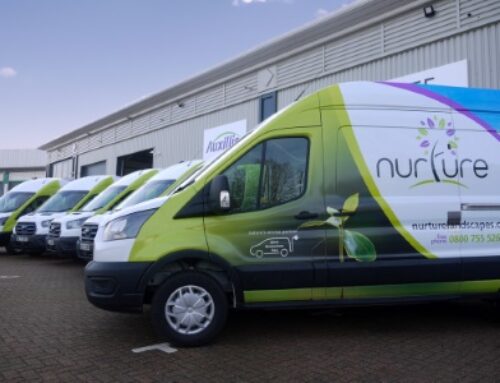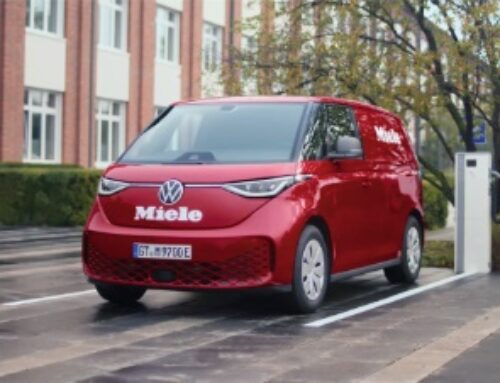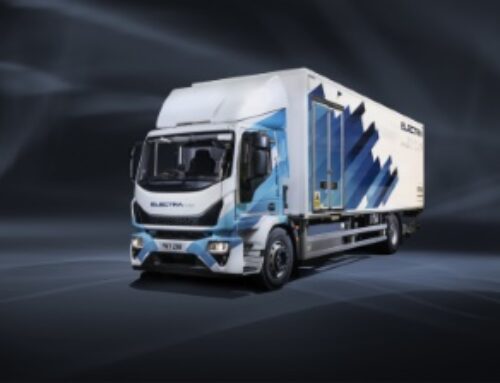Can EV corridors revolutionise freight routes?
Energy management body OpenADR Alliance has highlighted the role that electric vehicle (EV) corridors are set to play on the road to freight decarbonisation.
“In simple terms, EV corridors are networks that allow for the rapid charging of electric vehicles on major highways and transport routes,” said Rolf Bienert, managing and technical director at OpenADR Alliance.
“Much of the EV charging infrastructure has been focused on passenger cars to date. But with diesel vehicles being phased out and a greater focus on cleaner greener freight transportation, it’s as important for commercial fleets and truck operators.”
However, the lack of a fast-charging infrastructure for this market has the potential to hold back fleet and truck electrification, Rolf argues, and the proposed decarbonisation of truck transportation.
“The e-truck market might be small right now, especially when compared to cars, but it’s projected to grow over the next few years,” he said.
“This potential for growth offers opportunities. Not just for the major vehicle manufacturers like Ford and Volvo who are already developing products or forming joint ventures to get a foothold in the e-truck market, but also for those in the wider EV ecosystem…
“In the US, one of the most advanced markets in terms of EV charging, the Biden administration recently announced plans to accelerate the creation of electric vehicle corridors. The goal is to create a national network of 500,000 public EV charging stations across the country…
“While largely aimed at consumer drivers, projects will also focus on electrification for heavily used domestic freight corridors, as part of the administration’s decarbonisation plans and to help reduce emissions from freight corridors.”
As part of these plans to accelerate the US rollout, explains Rolf, companies will also expand their own charging networks over the next few years.
“In Europe, bp pulse, the electric charging division of bp, recently announced a new development with the first charging corridor for medium and heavy-duty trucks in Europe.
“The six public charging locations with ultra-fast 300kw charge points along a 600km stretch of the Rhine-Alpine corridor across Germany are designed with electric trucks in mind. This is no coincidence as it is one of busiest road freight routes in Europe.
“The new chargers, which can charge an e-truck up to 200km in around 45 minutes, are located at convenient retail sites owned by bp’s German brand, Aral, which also offer other facilities for drivers.”
The scale of these efforts cannot be underestimated, says Rolf, and will be transformational across key routes in the UK and Europe.
“According to reports, by 2025 around 40,000 electric medium and heavy-duty vehicles will be operating in Europe. This is relatively low compared to electric cars, but scale this up to 270,000 by 2030 and things look very different.
“With their higher power and energy demand, trucks are not designed to be plugged into chargers for cars, while driving a large heavy vehicle into a facility aimed at car drivers is not practical.
“The European Automobile Manufacturers’ Association (ACEA) published a positioning paper two years ago addressing heavy duty vehicle charging and refuelling infrastructure requirements. The conclusion at that time was the infrastructure required was missing and called for policymakers to take action to ensure a rapid roll-out as part of the review of the Alternative Fuels Infrastructure Directive (AFID)…
“We are starting to see this happen, through the efforts of bp and others, including EV companies focused on the heavy-duty truck and commercial fleet markets – BYD, Lightning eMotors, Proterra, Schneider, Tesla, VNR Electric (Volvo), Kenworth, Nikola, and more,” said Rolf.
“It’s a positive start and one set to revolutionise the road freight industry. But as part of a growing ecosystem of members and partners involved in developing and supporting an EV charging infrastructure, we at the OpenADR Alliance see the potential to deliver fast, accessible and reliable charging infrastructure that is fit for purpose.”











